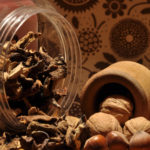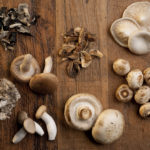8 Ways To Fight Memory Loss

Memory loss can occur for a variety of reasons. Some loss of memory with aging is natural – it is normal to experience short-term forgetfulness, such as the inability to remember a person’s name you met recently. Memory loss that is not a normal part of aging is called dementia. The most common form is Alzheimer’s disease. Also common is multi-infarct dementia caused by successive strokes that gradually affect brain tissue. Memory loss may also result from alcoholism, infection or repeated head trauma.
The two major categories of memory are short-term and long-term memory. Short-term memory includes remembering the names of people you recently met or where you put your car keys. Information stored in long-term memory includes events that occurred years ago, such as the name of your third-grade teacher, what you wore to your prom, or where you worked during your summer breaks from college.
As we get older, we experience a gradual loss of brain cells. This can affect the way we store and retrieve information. Our short-term memory progressively declines, causing difficulty in remembering details of recent events as well as a diminished ability to learn. Memory loss from aging does not typically affect normal functioning, however, nor does it necessarily get worse over time. It is not the same as dementia.
5 Recommended Lifestyle Changes For Healthy Aging
- Exercise your mind. Research shows that the old adage “use it or lose it” applies to your mental power as much as to the rest of your body. Crossword puzzles, mind games, and challenging reading or educational classes can all help you keep your brain agile and strong.
- Exercise your body. Physical exercise seems to correlate with better mental function, perhaps because of improved circulation.
- Eat a diet rich in antioxidants and omega-3 fatty acids. Vegetables and fruits are the best sources of antioxidants, although tea and dark chocolate contribute as well. Cold-water fish, freshly ground flaxseed and walnuts provide omega-3s.
- Avoid alcohol. Alcohol’s damaging effect on brain cells is well established in the medical literature.
- Reduce stress. Learn and practice regular relaxation techniques like meditation or yoga.
3 Nutritional Supplements
Take a daily multivitamin that provides adequate levels of folic acid and other B vitamins. They help the body get rid of homocysteine, a toxic amino acid formed by the breakdown of animal protein that has been linked to heart attack and stroke, and more recently with increased risks of Alzheimer’s. These supplements are also linked to healthy cognitive function:
- Ginkgo biloba – Increases circulation to the brain. Provides memory enhancing effects.
- DHA – One of the omega-3 fatty acids essential for normal brain development and function.
- A vision support formula – Providing antioxidants, zinc, lutein and zeaxanthin.












